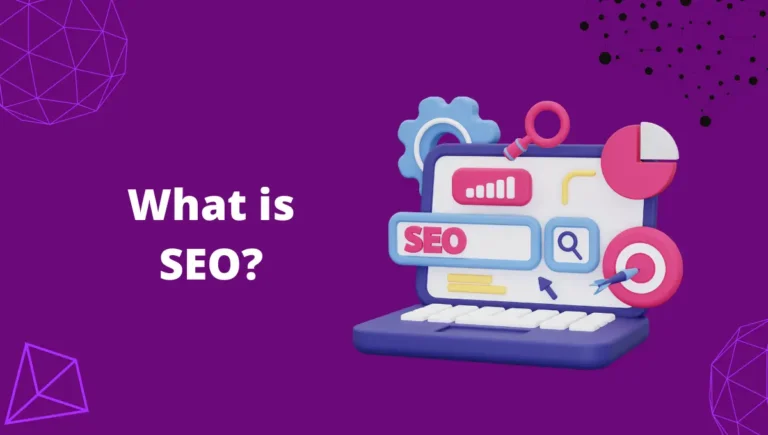How to Leverage Social Media for Business Growth
Social media is an excellent way to grow your business. Billions of users on platforms like Facebook, Instagram, LinkedIn, and Twitter present a huge opportunity to either connect with new customers or reconnect with old ones. However, most businesses poorly utilize this social media potential. Normally, businesses either do not plan their content and campaigns or do not know of any method by which they can track their success.
This blog post by FOR® will help you use social media to grow your business. We will give insights into creating an effective social media strategy, driving engagement around your content, and using the right tools to track your results.
The Role of Social Media in Business Growth
Social media marketing is no longer optional; it is a must for building your brand, customer engagement, and generating sales for any business that wants to grow. In 2024, over 4.9 billion people will use social media. This number shows how large your audience can be and waiting for any business that can reach out to them effectively.
Efficient social media marketing might contribute to building a business by raising brand awareness, which is highly important for attracting new customers, and the ability of a business to interact with its audience directly, developing a more personalized feeling that can lead to stronger customer loyalty. For example, a small business that engages with its customers on social media sees a 20-40% increase in customer satisfaction and retention rates.
Moreover, social media platforms offer businesses the option to target advertisements by showing them to particular demographics. This makes it more likely that the ads will reach more potential customers who can be leads. This enables a business to extend its reach and further improve lead quality, assuring high conversion rates and more sales.
How to Create an Efficient Social Media Strategy
Every successful social media strategy execution involves clarity of goals. A business has to identify what it aims to achieve through social media, whether it is brand awareness, website traffic, lead generation, or sales. Only then can any business grade its achievement and make informed adjustments to its strategy.
Understanding Your Target Audience
Once the goals are set, it’s important to understand the target audience. Businesses must know their customers, what they care about, and which social media platforms they use. For example, if your target audience is young adults, then Instagram and TikTok work more effectively than LinkedIn or Twitter. These other platforms are more beneficial when you are marketing to professionals or B2B.
Choosing the Right Platforms
Of course, choosing the platforms is only the first step. Planning the content will be the next important task. You should design a content calendar that indicates the type of posts you will publish and when.
Second, consistency will play a major role. Posting regularly will help maintain the audience’s interest and keep the brand on their minds. Your content should be different, like videos, infographics, or whatever you can do to cater to different audience preferences.
Optimize Your Content for All Platforms
In addition, the content should be optimized for each platform. For example, Instagram is visually engaged, and high-quality images and short, engaging videos work well on this platform. Twitter is more textually engaged, so shorter, impactful messages may resonate better on this platform.
The Importance of Active Engagement
Online engagement is a key factor for social media success. Businesses must post different types of content and interact with their audience directly. This means commenting back, joining a conversation, and asking users to share their thoughts and experiences.
Content Optimisation for Maximum Engagement
Content optimisation cannot be looked over in terms of driving engagement. A post should be fast enough to attract users’ attention when scrolling their feeds. Compelling visuals, catchy headlines, and relevant hashtags can make a difference in getting your content noticed or shared.
Building a community around your brand
Focus on creating a community around your business. For example, you can ask customers to share their photos using your products. You can also run contests and giveaways to get people excited and engage with your brand.
Influencer Partnerships
Influencers have many followers who trust their judgments. Partnering with them and matching your brand’s values will attract new audience and give credibility to your brand. This will help to make your brand popular and grow your business.
Using Social Media Tools for Efficiency and Growth
Managing social media is a pain, especially when someone owns multiple accounts. Fortunately, there are a number of tools that can lighten this burden. These scheduling tools make posting pretty easy. In fact, you can plan in advance and keep track of how you are performing and engage with your audience.
Scheduling Tools for Consistency
These tools include Hootsuite, Buffer, Later and many more. You can create and schedule your content in advance and then post to multiple sites simultaneously. It will help you to stay consistent, save your time and keep the audience interested.
Analytics Tools for Measurement
You will need analytic tools to determine the performance of your social media. In this case, tools like Sprout Social and Google Analytics provide you with comprehensive data associated with post-performance, who is observing your content, and which platform is driving more website traffic.
You’ll be able to take this data and make further alterations to your social media strategy, focusing on the things that work best for your business. For example, you may create more of a certain kind of content that draws lots of engagement.
Automation Tools for Efficiency
Automation tools help businesses work more efficiently and grow. By automating things like posting and answering questions, businesses have more time to create better content and understand their audience. Tools like Zapier make it easier to connect different platforms and make your social media work smoother.
The second and very important thing is monitoring your online reputation. Tools like Brandwatch and Mention can be used to track what people say about your brand on social media and on websites. So, you can respond quickly to negative comments and connect with happy customers, which helps your brand reputation.
Measuring Success and ROI
If you want to make sure your social media strategies are benefitting your business, you can do it by tracking some metrics. The metrics simply give a very clear idea of your social media strategy’s performance and where adjustments may be necessary. The key metrics to track include.
- Engagement rates include likes, comments, shares, and overall interaction.
- Track follower growth to understand how your audience grows with time.
- Analyse the website traffic. It is the number of visitors who come to your website via social media.
- The conversion rates monitor social media interactions, resulting in desired actions being taken.
Calculating ROI
You should also be calculating the ROI on social media marketing. This is done by comparing the revenue generated from social media activities with the cost involved in running campaigns across the channels. This will give an exact view whether your social media efforts are profitable or where you need to invest more or cut resources.
Continuous Improvement
The only way to maintain and grow social media success is through continuous improvement. You should regularly analyse performance metrics and adjust your strategy based on the insights. You track these insights to stay ahead of trends and keep your social media engagement aligned with your business goals.
Conclusion
Social media can help businesses grow, but you need a good strategy to succeed. You can create a clear plan, engage with your audience, use the right tools, and track your results. Keep learning about new trends and tools to stay ahead. By doing these things, you can use social media to help your business grow and be successful.
Want to boost your online presence and drive business growth through effective social media marketing? Contact Toni Hukkanen, the head of FOR® Branding and Marketing Agency, to create a tailored strategy that will help you achieve your goals.
Keep an eye for more news & updates on HipHopHipHop!






